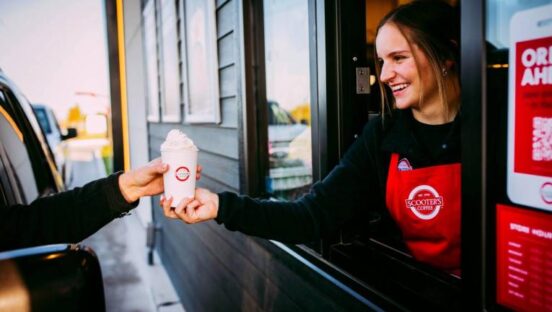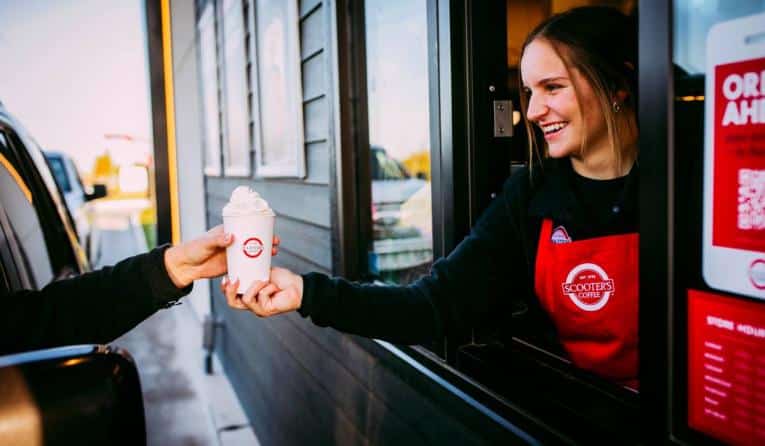As the sun peeks over the horizon, millions of people kickstart their day with a cup of coffee. It’s as much a part of their morning routine as showering or brushing their teeth, yet most people probably don’t think about what it takes to get the coffee into their cup.
The journey from bean to brew starts thousands of miles away, on coffee farms in Costa Rica, Colombia, Indonesia, Ethiopia, Brazil, and Guatemala. Farmers need both patience and luck to grow coffee; it takes three to five years before an Arabica coffee plant starts producing beans, and the plant won’t reach maximum yield for about 10 years. That’s a long-term investment for the coffee farmers, who know their crop is at the mercy of the weather, and the market value of the beans when they go to sell them.
Coffee is one of the largest commodities in the world. Farmers sell their beans to wholesalers, who sell to suppliers, who sell to coffeehouses. This process often cuts into the farmers’ already slim profit margins, impacting their ability to make a living. At Scooter’s Coffee, we knew there had to be a better way. Scooter’s Coffee is the Midwest-based drive-thru coffee company known for our distinctive, red-roofed kiosks. We believe our success is as much from the relationships we build as the coffee we brew. In an effort to treat coffee as more than a commodity and really understand the people we’re doing business with, we developed what we call Relationship Coffee.
One of the essential parts of this model is building strong partnerships with coffee farmers. It begins with the concept of micro milling. By keeping the milling and production within the farms, Scooter’s Coffee ensures more profits stay with the farmers, reducing the layers of intermediaries that traditionally erode farmers’ earnings. We do that by discussing multi-year growth strategies with the farmers and paying them a premium for their beans, so they make more than it costs them to produce. Our goal is to ensure farmers know we will continue to buy from them, so they can source loans and grow their business.
At the heart of this is building mutual trust through open communication. Many of these farmers are from relationship-based cultures, so it’s important to establish a relationship based on who they are, not just what they do and how they can help us. As a result, when there’s a problem, we know we have each other’s backs.
Scooter’s Coffee is also working to build strong relationships between our franchisees and our farmers. Recently, we took two dozen franchisees and store operators to Costa Rica. They toured coffee farms, planted coffee, and got to see what it took to pick the beans, giving them a better understanding of the challenges the farmers face. Meanwhile, many farmers have visited the U.S. to tour Scooter’s Coffee locations, meet with franchisees, and even attend the franchise conference. Talking with store operators and seeing how we get their beans from the farm to the cup gives them a better idea of the complexity of running a business in the U.S.
The Scooter’s Coffee approach to coffee reflects our core values of integrity, love, humility, and courage, as well as our commitment to doing business with honor and respect. We don’t insist this is the only way to do business or even the best way, but this is our way, and we are proud of it.
In a world where the origin of products is increasingly valued, Scooter’s Coffee stands out not just for quality coffee but for the relationships that are always brewing. This is one of the key reasons why Scooter’s Coffee franchisees can provide world-class coffee to their communities every day. It’s a reminder that behind every enjoyable coffee experience is a network of human connections, each essential to bringing that perfect cup of coffee to life.
Nick Jarecke joined the Scooter’s Coffee team in 2019. As Vice President of Supply Chain, he helped create an efficient distribution network to support the rapid growth of Scooter’s Coffee, as well as building and nurturing relationships with coffee growers, suppliers, franchisees, and employees. In December 2023, Jarecke was promoted to Chief Supply Chain Officer. In his new role, Jarecke will continue to lead supply chain initiatives including strategic sourcing, cost management, logistics, new product commercialization, field execution, and supplier relationships.













